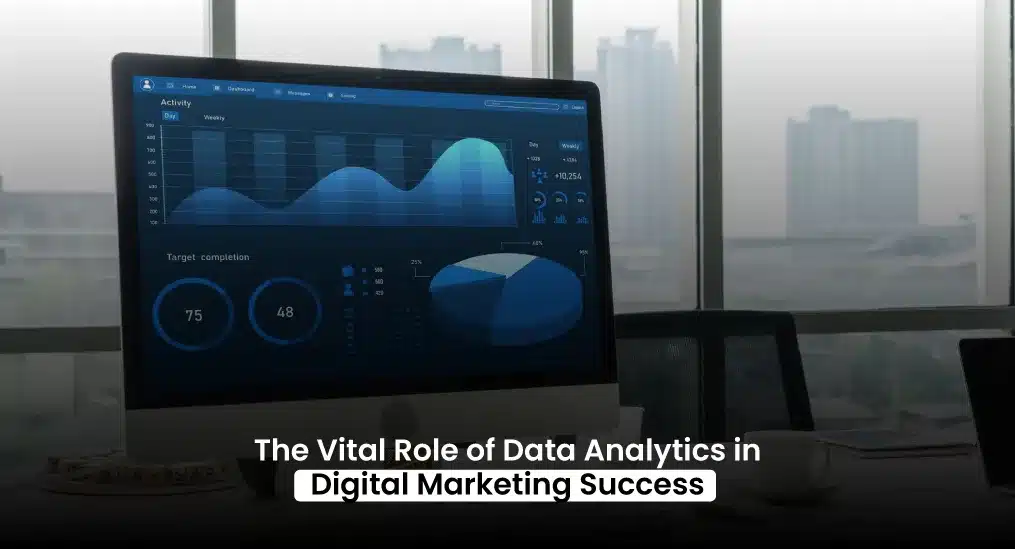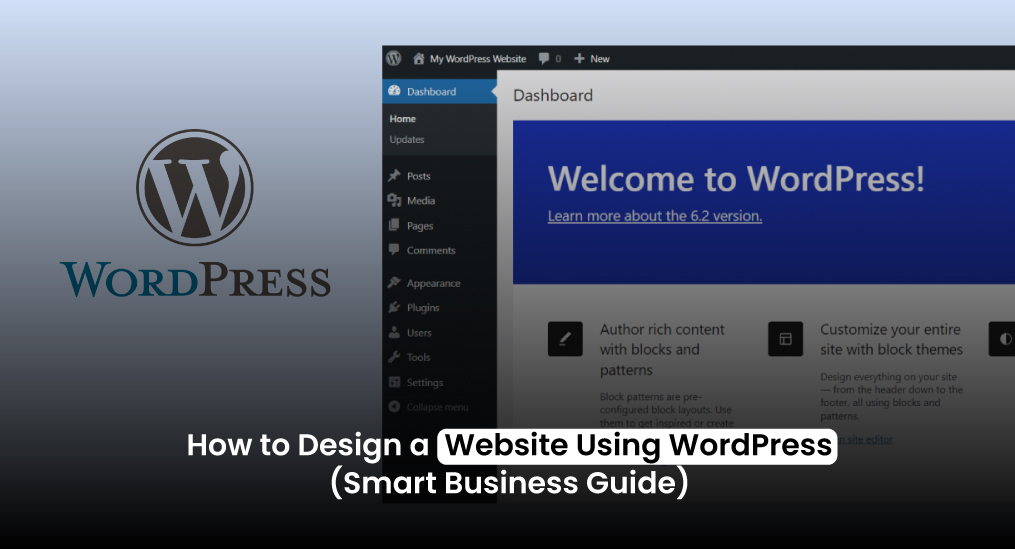In today’s digital landscape, businesses must constantly evolve their strategies to stay ahead of the competition. Among the most powerful tools for achieving digital marketing success is data analytics—a game-changing element of strategy development that helps companies understand their audience, adapt to market trends, and fine-tune campaign performance.
But succeeding in digital marketing isn’t just about launching campaigns; it’s about knowing what works and why. By leveraging data analytics, businesses gain insights that allow them to optimize their strategies, enhance campaign effectiveness, and ultimately achieve their marketing goals.
In this article, we’ll examine how data-driven decisions shape the future of digital marketing success.
Understanding Data Analytics for Marketing Success

In digital marketing, data analytics involves collecting, analyzing, and interpreting information from online platforms to inform better decision-making. This means turning raw data from website visits, social media interactions, email campaigns, and other sources into actionable insights.
With a wide range of user-friendly tools available, marketers can quickly uncover trends, track performance, and adjust their strategies on the fly. This approach not only improves the effectiveness of campaigns but also helps businesses achieve more impactful results.
How Data Analytics Drives Digital Marketing Success

1. Targeting the Right Audience
At the heart of every successful digital marketing strategy is a deep understanding of the audience. Data analytics offers valuable insights—such as demographics, geography, and user behavior—allowing marketers to pinpoint their ideal customers.
For example, tools like Google Analytics help track user actions, showing which pages they visit, how long they stay, and what content they prefer.
With this information, marketers can effectively segment their audience and create personalized campaigns that reach the right people at the right time. This targeted approach significantly improves engagement and boosts conversion rates.
2. Enhancing Campaign Performance
The key to successful marketing campaigns is knowing what works—and what doesn’t. Data analytics allows businesses to monitor campaign performance in real time. Metrics like click-through rates, conversion rates, and bounce rates provide clear insights into how well a campaign is resonating with its audience.
Marketing platforms like HubSpot and Adobe Analytics present this data through intuitive dashboards, making it easier to pinpoint strengths and weaknesses. With these insights, marketers can quickly fine-tune their campaigns—adjusting ad copy, reallocating budgets, or refining targeting—to improve performance and achieve success more efficiently.
3. Optimizing Content Strategy
Content is the cornerstone of digital marketing, but not every piece of content drives results. Data analytics helps identify which formats—like blog posts, videos, or social media updates—generate the most engagement.
Tools such as BuzzSumo and SEMrush provide keyword insights and SEO recommendations. By leveraging these analytics, businesses can produce high-quality, search-friendly content that boosts organic traffic and improves overall visibility.
4. Leveraging Predictive Analytics for Better Decision-Making
Growth marketing predictive analytics takes data insights to the next level, using past data and machine learning to anticipate future trends and customer behavior.
For example, predictive models can analyze a customer’s previous interactions to determine what products they’re most likely to purchase next.
By integrating predictive analytics, businesses can anticipate customer needs, adjust their strategies, and offer tailored solutions. This forward-thinking approach not only improves digital marketing performance but also enhances customer satisfaction and loyalty.
5. Maximizing ROI on Digital Advertising
Digital advertising is a cornerstone of many marketing strategies, often consuming a significant portion of budgets. To ensure every dollar counts, data analytics provides detailed insights into campaign performance across platforms like Google Ads, Facebook Ads, and LinkedIn Ads.
Key metrics such as cost per click (CPC), cost per acquisition (CPA), and return on ad spend (ROAS) help marketers evaluate the efficiency of their ad spend. Armed with this data, they can refine bidding strategies, adjust targeting, and optimize ad placements to improve ROI and achieve more impactful results.
6. Improving Customer Experience
A seamless customer experience is key to building trust and fostering loyalty. Data analytics helps businesses understand the customer journey, pinpointing areas where users encounter friction and identifying opportunities for improvement.
For example, heatmaps and session recordings can highlight problematic areas on a website—like confusing menus or slow-loading pages.
By addressing these pain points, businesses can create a smoother, more user-friendly experience, increasing engagement and boosting customer satisfaction.
Final Thoughts
In today’s data-driven world, analytics is no longer optional—it’s essential. From refining marketing strategies to enhancing customer experiences, data analytics provides the actionable insights needed to stay ahead in a crowded digital landscape.
By using advanced tools and techniques such as predictive analytics, SEO optimization, and performance metrics, businesses can fully realize the potential of their marketing efforts.
Companies that embrace data-driven decisions will be well-equipped to achieve long-term digital marketing success, even as the industry continues to evolve. Partner with Koretechx to harness the power of analytics, elevate your digital marketing campaigns, and stand out in a competitive marketplace.






